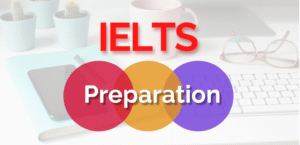IELTS Preparations

About Course
Course Type: Self-paced | Video + Text + Quiz Based | Tutor-LMS Integrated
Course Description:
This comprehensive course is designed to support learners aiming to succeed in the IELTS exam while building strong academic English skills essential for university study and professional communication. Whether you are preparing for undergraduate, postgraduate, or migration purposes, this course equips you with the tools to excel.
Through interactive video lessons, practical reading and writing exercises, grammar and vocabulary development, and authentic IELTS-style quizzes, you’ll steadily build confidence in all four skills: Listening, Reading, Writing, and Speaking. Academic English components will deepen your critical thinking, essay structuring, referencing, and presentation abilities—key for higher education and research.
What’s Included:
-
Video tutorials by CELTA-qualified instructors and native English speakers
-
Targeted IELTS practice tasks (Academic & General Training)
-
Vocabulary and grammar for academic use
-
Writing feedback and model answers
-
Speaking prompts with sample responses
-
Quiz-based checkpoints for progress tracking
-
Downloadable resources and worksheets
Who Should Join:
-
IELTS candidates targeting Band 6.5+
-
University applicants and researchers
-
Non-native English speakers improving academic fluency
-
Professionals aiming to boost global communication skills
Outcomes:
By the end of this course, you will be able to:
-
Confidently approach each section of the IELTS exam
-
Produce clear, well-structured academic writing
-
Engage in academic discussions and presentations
-
Improve your English for academic and professional settings
